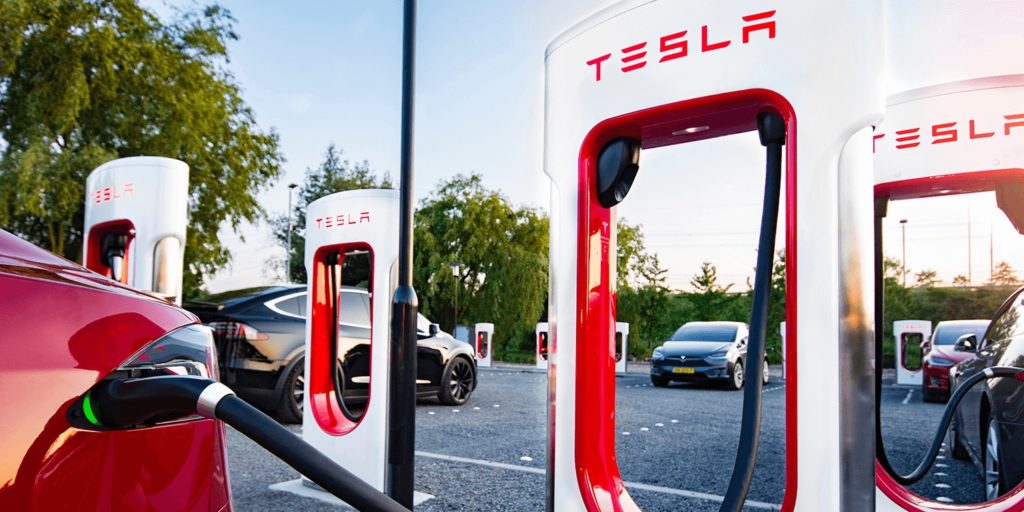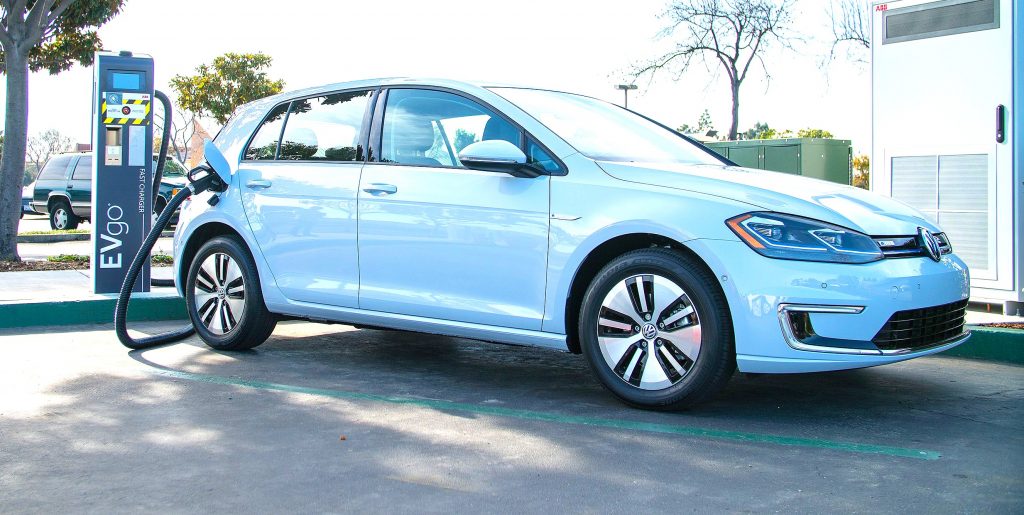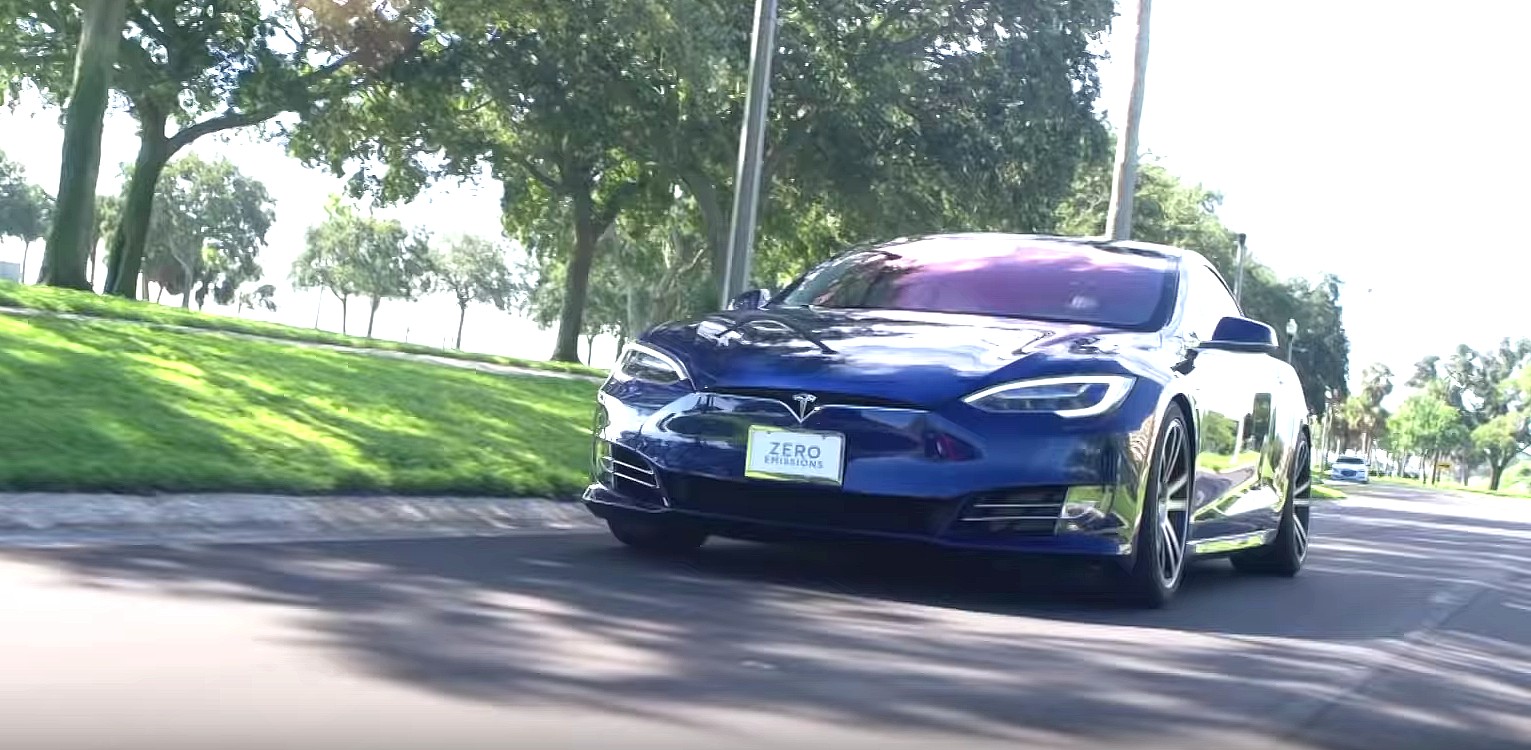After a three-day hearing, Colorado’s Air Quality Control Commission has decided to approve the adoption of a zero-emissions vehicle mandate. With this landmark decision, Colorado has become the 10th state to join California’s ZEV program, which is expected to improve air quality in the region while pushing automakers to expand their electric car offerings.
The adoption of the ZEV mandate, which requires carmakers to roll out more zero-emissions vehicles, was met with widespread support from members of the commission. The results of the vote was 8-1, with Commissioner Tom Gonzales being the sole official who opposed the mandate. Nevertheless, in a statement to The Colorado Sun, Commissioner Auden Schendler from Basalt noted that the ZEV mandate is but a modest step forward.
“This is an important step forward. But frankly, it’s a modest step. I think it’s as important for what it does as for what it signals. One of the big signals is the fact that auto manufacturers said we support it, this is technically feasible, we can move forward. I think it’s going to add energy to the emissions reduction effort just when we need it,” Schendler said.

In a written statement, CO Gov. Jared Polis explained that he personally pushed for the state’s adoption of the ZEV mandate as a way to address and potentially reduce the subpar air quality in a number of the region’s urban areas. Accelerating the adoption of vehicles that do have no emissions such as battery-electric cars is among the ways to address this issue.
“In one of my first executive orders as governor, I asked for the Department of Public Health and Environment to increase the choices Coloradans have when it comes to purchasing electric cars by increasing the number of models available in our state, and we got it done within a few short months. It’s only the beginning. Colorado must continue to reduce smog and increase consumer choice,” the governor noted.
The approval of Colorado’s ZEV mandate did not come without opposition. During the hearing, several auto dealers noted that they must purchase vehicles from manufacturers, and when cars don’t sell, they end up losing money every day, thanks in no small part to interest and maintenance on the vehicles themselves. Others added that Colorado residents purchase SUVs and pickups, and these are simply rare in EV form. Tim Jackson, president of the Colorado Automobile Dealers Association, argued that local dealerships stand to lose money if they give discounts to electric cars as well.

“Even though the vote was fairly overwhelming, there was a lot of concern that it doesn’t mean anything. But if it wasn’t going to be mean anything, then why do it because it will raise the price of cars that Coloradans want and need to buy,” Jackson said.
The Colorado Automobile Dealers Association president’s statement, if any, appears to discount the fact that there are a number of zero-emissions vehicles that are expected to make waves in the SUV and pickup segment. Tesla has the Model X as its resident SUV, and it will soon be joined by the Model Y crossover, which is far more affordable. The pickup truck segment is also set to be electrified, with vehicles such as the Tesla Pickup Truck, the Rivian R1T, and Ford’s very own electric F-150 expected to enter the market in the near future.
Amidst the widespread adoption of electric cars and the emergence of disruptive car companies such as Tesla, the number of dealerships across the United States has been seeing a notable decline. According to data from the National Automobile Dealers Association, many of these dealers actually lose money on the sale of electric cars, especially considering that EVs are known for needing little maintenance. This is unfortunate for car dealers, as a notable part of their revenue comes from service and repairs.
H/T Ray4Tesla.
News
Tesla begins Robotaxi certification push in Arizona: report
Tesla seems serious about expanding its Robotaxi service to several states in the coming months.

Tesla has initiated discussions with Arizona transportation regulators to certify its driverless Robotaxi service in the state, as per a recent report from Bloomberg News. The move follows Tesla’s launch of its Robotaxi pilot program in Austin, Texas, as well as CEO Elon Musk’s recent comments about the service’s expansion in the Bay Area.
The Arizona Department of Transportation confirmed to Bloomberg that Tesla has reached out to begin the certification process for autonomous ride-sharing operations in the state. While details remain limited, the outreach suggests that Tesla is serious about expanding its driverless Robotaxi service to several territories in the coming months.
The Arizona development comes as Tesla prepares to expand its service area in Austin this weekend, as per CEO Elon Musk in a post on X. Musk also stated that Tesla is targeting the San Francisco Bay Area as its next major market, with a potential launch “in a month or two,” pending regulatory approvals.
Tesla first launched its autonomous ride-hailing program on June 22 in Austin with a small fleet of Model Y vehicles, accompanied by a Tesla employee in the passenger seat to monitor safety. While still classified as a test, Musk has said the program will expand to about 1,000 vehicles in the coming months. Tesla will later upgrade its Robotaxi fleet with the Cyercab, a two-seater that is designed without a steering wheel.
Sightings of Cybercab castings around the Giga Texas complex suggests that Tesla may be ramping the initial trial production of the self-driving two-seater. Tesla, for its part, has noted in the past that volume production of the Cybercab is expected to start sometime next year.
In California, Tesla has already applied for a transportation charter-party carrier permit from the state’s Public Utilities Commission. The company is reportedly taking a phased approach to operating in California, with the Robotaxi service starting with pre-arranged rides for employees in vehicles with safety drivers.
News
Tesla sets November 6 date for 2025 Annual Shareholder Meeting
The automaker announced the date on Thursday in a Form 8-K.

Tesla has scheduled its 2025 annual shareholder meeting for November 6, addressing investor concerns that the company was nearing a legal deadline to hold the event.
The automaker announced the date on Thursday in a Form 8-K submitted to the United States Securities and Exchange Commission (SEC). The company also listed a new proposal submission deadline of July 31 for items to be included in the proxy statement.
Tesla’s announcement followed calls from a group of 27 shareholders, including the leaders of large public pension funds, which urged Tesla’s board to formally set the meeting date, as noted in a report from The Wall Street Journal.
The group noted that under Texas law, where Tesla is now incorporated, companies must hold annual meetings within 13 months of the last one if requested by shareholders. Tesla’s previous annual shareholder meeting was held on June 13, 2024, which placed the July 13 deadline in focus.
Tesla originally stated in its 2024 annual report that it would file its proxy statement by the end of April. However, an amended filing on April 30 indicated that the Board of Directors had not yet finalized a meeting date, at least at the time.
The April filing also confirmed that Tesla’s board had formed a special committee to evaluate certain matters related to CEO Elon Musk’s compensation plan. Musk’s CEO performance award remains at the center of a lengthy legal dispute in Delaware, Tesla’s former state of incorporation.
Due to the aftermath of Musk’s legal dispute about his compensation plan in Delaware, he has not been paid for his work at Tesla for several years. Musk, for his part, has noted that he is more concerned about his voting stake in Tesla than his actual salary.
At last year’s annual meeting, TSLA shareholders voted to reapprove Elon Musk’s compensation plan and ratified Tesla’s decision to relocate its legal domicile from Delaware to Texas.
Elon Musk
Grok coming to Tesla vehicles next week “at the latest:” Elon Musk
Grok’s rollout to Tesla vehicles is expected to begin next week at the latest.

Elon Musk announced on Thursday that Grok, the large language model developed by his startup xAI, will soon be available in Tesla vehicles. Grok’s rollout to Tesla vehicles is expected to begin next week at the latest, further deepening the ties between the two Elon Musk-led companies.
Tesla–xAI synergy
Musk confirmed the news on X shortly after livestreaming the release of Grok 4, xAI’s latest large language model. “Grok is coming to Tesla vehicles very soon. Next week at the latest,” Musk wrote in a post on social media platform X.
During the livestream, Musk and several members of the xAI team highlighted several upgrades to Grok 4’s voice capabilities and performance metrics, positioning the LLM as competitive with top-tier models from OpenAI and Google.
The in-vehicle integration of Grok marks a new chapter in Tesla’s AI development. While Tesla has long relied on in-house systems for autonomous driving and energy optimization, Grok’s integration would introduce conversational AI directly into its vehicles’ user experience. This integration could potentially improve customer interaction inside Tesla vehicles.
xAI and Tesla’s collaborative footprint
Grok’s upcoming rollout to Tesla vehicles adds to a growing business relationship between Tesla and xAI. Earlier this year, Tesla disclosed that it generated $198.3 million in revenue from commercial, consulting, and support agreements with xAI, as noted in a report from Bloomberg News. A large portion of that amount, however, came from the sale of Megapack energy storage systems to the artificial intelligence startup.
In July 2023, Musk polled X users about whether Tesla should invest $5 billion in xAI. While no formal investment has been made so far, 68% of poll participants voted yes, and Musk has since stated that the idea would be discussed with Tesla’s board.
-

 Elon Musk1 week ago
Elon Musk1 week agoTesla investors will be shocked by Jim Cramer’s latest assessment
-

 Elon Musk3 days ago
Elon Musk3 days agoElon Musk confirms Grok 4 launch on July 9 with livestream event
-

 Elon Musk13 hours ago
Elon Musk13 hours agoxAI launches Grok 4 with new $300/month SuperGrok Heavy subscription
-

 News7 days ago
News7 days agoTesla Model 3 ranks as the safest new car in Europe for 2025, per Euro NCAP tests
-

 Elon Musk2 weeks ago
Elon Musk2 weeks agoA Tesla just delivered itself to a customer autonomously, Elon Musk confirms
-

 Elon Musk1 week ago
Elon Musk1 week agoxAI’s Memphis data center receives air permit despite community criticism
-

 Elon Musk2 weeks ago
Elon Musk2 weeks agoTesla’s Omead Afshar, known as Elon Musk’s right-hand man, leaves company: reports
-

 News2 weeks ago
News2 weeks agoXiaomi CEO congratulates Tesla on first FSD delivery: “We have to continue learning!”

















